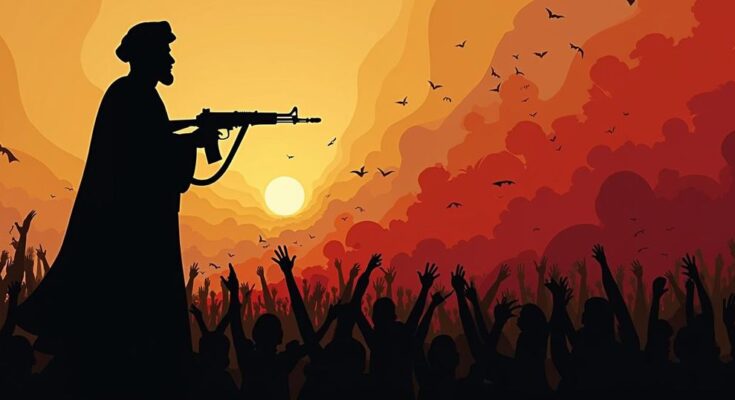The assassination of Hassan Nasrallah has placed Iran in a precarious position requiring a decisive response to maintain credibility and manage its regional influence. The U.S. has been left diplomatically humiliated, as Israel’s actions have undermined the stability the U.S. sought to uphold in the region. Iran’s choices now are either to retaliate militarily or to advise Hezbollah toward accepting a ceasefire, setting the stage for potentially transformative repercussions in Middle Eastern geopolitics.
In a significant escalation of Middle East tensions, the killing of Hezbollah leader Hassan Nasrallah has left Iran facing a critical decision that could shape the future of the region. U.S. Secretary of State Antony Blinken had previously stated that the ensuing days would be pivotal for Middle Eastern dynamics, potentially hoping for a de-escalation between Hezbollah and Israel. However, the confirmed death of Nasrallah has pushed the situation to an unprecedented level of volatility. Iran must now navigate a precarious dilemma. If Tehran chooses to merely condemn Israel’s actions, it risks undermining its credibility within its established axis of resistance, which has been painstakingly cultivated over many years. Alternatively, in a more pragmatic approach, Iran may advise Hezbollah to accept a ceasefire, foregoing its goal of a comprehensive halt in hostilities that includes Gaza. Conversely, should Iran opt for a direct military response against Israel, it must ensure it is substantial. The Iranian leadership is cognizant that it would be confronting a military force renowned for its advanced technological and intelligence capabilities, which have already penetrated deep into Hezbollah’s operations and potentially into the Iranian capital as well. President Masoud Pezeshkian of Iran, who is keen on alleviating economic sanctions through improved relations with the West, faces this crisis at a particularly inopportune moment. His senior diplomat, Sayeed Abbas Araghchi, has recently engaged in crucial discussions with European officials at the UN, aiming to revive talks linked to the 2015 nuclear deal, which has been undermined since the U.S. withdrawal in 2018. Notably, Rafael Grossi, head of the UN nuclear watchdog, expressed optimism regarding negotiations speed due to Araghchi’s expertise. However, Nasrallah’s death complicates efforts by reformists to persuade military leaders in Iran about the merits of diplomatic engagement. Pezeshkian has also lamented the lack of reciprocation for Iran’s previous restraint following the assassination of Hamas leader Ismail Haniyeh by Israel, which he anticipated would lead to a ceasefire deal. In a response that reflects the seriousness of the situation, Iran’s Supreme Leader Ayatollah Ali Khamenei has encouraged Muslims worldwide to support Hezbollah against what he termed the “wicked regime of Israel.” This episode has been particularly embarrassing for the United States, which has found its diplomatic strategies undercut. Netanyahu’s actions, which involved reneging on previously agreed upon ceasefire arrangements, have left the U.S. looking ineffective and vulnerable in its alliances.
The current geopolitical climate in the Middle East has been marked by strained U.S.-Israel relations amidst rising tensions involving Hezbollah and Iran. The recent assassination of Hassan Nasrallah by Israeli forces has catalyzed a shift in regional dynamics, forcing Iran to consider its strategic options amidst a backdrop of ongoing conflicts in Gaza and tensions that have persisted since the onset of hostilities between Israel and Hamas in October 2023. Additionally, Iran’s new reformist government, under President Masoud Pezeshkian, seeks economic relief through international diplomacy while grappling with internal military pressures.
The killing of Hassan Nasrallah has plunged Iran into a significant dilemma, challenging its credibility and diplomatic strategies in the Middle East. As the Iranian leadership weighs its options, the geopolitical landscape remains fraught with peril for all involved. The U.S. faces a substantial diplomatic embarrassment, having found itself unable to contain the fallout from Israel’s actions or to effectively guide its ally Netanyahu. Moving forward, the balance of power may hinge on Iran’s next steps and whether it chooses military confrontation or diplomatic engagement as its response to this critical juncture.
Original Source: www.theguardian.com




